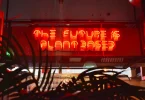This is your ultimate crash course in loving a city that loves to confuse you back. Istanbul doesn’t just welcome you with open arms- it tests your patience, your sense of direction, and your ability to survive taxi rides that feel like The Fast and Furious while you nervously count your change.
For many expats, Istanbul is an exhilarating mess: part cultural dream, part logistical nightmare. It’s a place where you might finally nail ordering a perfect simit and çay combo, only to get lost in translation during a simple conversation or discover that the metro line you rely on has spontaneously shut down or the bus driver has refused to take the usual route “just because.” And yes, the taxi driver who swore he’d take the fastest route might have just circled the block- twice.
The art of looking like you know what’s going on
Navigating and surviving cosmopolitan cities, especially one like Istanbul, should be an Olympic sport. Newcomers quickly learn the essential skill of nodding along to conversations they only half-understand, smiling at hand gestures that make no sense, and guessing whether “Evet” means yes, maybe, or please don’t ask again.
“The amount of times I have confused Bekar misin and Bakar misin is awfully embarrassing, i just stick to saying pardon like an Istanbulite now,” laughs Maya, a photographer from LA residing in Istanbul since the last 8 years.
The real challenge, however, is cracking the code of cryptic facial expressions and subtle gestures. A single raised eyebrow, a sideways glance, or a barely noticeable head tilt can mean anything from a confident “yes” to a polite “no,” or even a gentle “let’s just drop it.” For fresh arrivals, figuring out whether you’re being genuinely invited or skillfully dodged feels like starring in a mystery thriller, where every flicker of the eye is a clue and every expression keeps you guessing. Mastering this silent dance is key to surviving Istanbul’s social maze.
This means learning to read not just words but the entire vibe: the tone of voice, the speed of speech, the way eyes dart away or lock in. It’s confusing and exhausting, but it also means that when you do crack the code, you get a glimpse into one of the most heartfelt, loving and layered cultures out there.
The payoff? When someone lets you in, even just a little, you’re not just a visitor, you become part of a secret club that understands Istanbul’s beautiful contradictions, its chaotic charm, and its silent signals. And suddenly, those cryptic glances don’t feel like puzzles anymore, they feel like conversations of their own.
Surviving İstanbul’s wild rides
If navigating the Turkish social cues is a puzzle, hopping into its taxis and buses is a rollercoaster you didn’t exactly sign up for- but can’t get off. Istanbul’s taxi drivers don’t just drive, they race, channeling their inner stunt drivers with lightning-fast lane changes, surprise U-turns, and “shortcuts” that mysteriously add an extra 20 minutes to your trip.
Add to that the infamous meter “pauses,” sudden fare hikes, and the classic “Sorry, I don’t know that route” excuse, and suddenly your simple ride turns into a high-stakes game of “Will I get scammed today?” Spoiler: Usually yes.
“I once paid 400 lira to go to a 5 minute distance because I didn’t realise the place was so nearby, and the cab driver had already insisted on the fare, it felt too exhausting to argue with him by the time i realised what had just happened. Now, whether its 5 minutes or 5 hours, i’ll take the local transport, or I’ll walk, but I never take a taxi,” sighs Julie, an Erasmus student from Germany.
But taxis are only half the adventure. The local buses? Think of a rush hour mosh-pit, bodies pressed so close you can count strangers’ freckles, while the driver darts through traffic like it’s an obstacle course. One student said, “I felt like a gym membership came with my bus pass, holding on for dear life and working muscles I didn’t even know I had.”
Navigating Istanbul’s public transit isn’t just about getting from A to B, it’s about developing ninja-level skills in patience, balance, and reading the unspoken “personal space” code that exists only when it desires. Lets not forget the commute time, where you must keep a margin of atleast 2 hours to go somewhere that’s technically only 20 minutes away.
Despite the chaos, locals swear by these daily adventures, and eventually, you do too. As one taxi driver told me with a grin, “If you survive the traffic here, you can survive anywhere.” And honestly? After a few rides, you start to believe it.
Just when you think you’ve had enough, the city surprises you. You hop on a ferry from Besiktas to Kadikoy, the chaos fades, seagulls glide beside you, tea in hand, and for a 20 blissful minutes, the Bosphorus becomes your therapy. Somewhere in the middle of the ride, a street musician sets up on the ferry and starts singing Turkish melodies that you dont fully understand, but you do fully enjoy. Sunlight glimmers on the sea, couples hold hands and cuddle in their seats, and suddenly, all the traffic, noise and chaos feels worth it.
Friendship and FOMO: The Social Tightrope
Making friends is another adventure. Local social circles often feel like cozy, long-standing dinner parties where everyone already knows the inside jokes, and you showed up thinking it was a casual potluck. You feel like you’ve accidentally wandered into an exclusive club. Long-time residents have relationships built over years, shared history, and countless cups of tea. Expats, meanwhile, find themselves in floating pods of people bonded by visa woes, rental horror stories, and mutual confusion over public transportation.
The expat community is a safety net but can also become a bubble. Sometimes you crave the “authentic” local experience, only to realize it’s hard to break through layers of language, custom, and time. And yes, sometimes that means navigating social events where you don’t know if the food you’re eating is a traditional dish or some kind of elaborate prank (sirdan, kokorec).
There’s a hunger for authenticity, for local friendships, for real immersion. But breaking into those spaces isn’t always easy. It takes time, trust, and a genuine effort to connect with their cultures, traditions and norms.
And then there’s the subtle envy you feel when you overhear fluent Turkish conversations at a table nearby, full of cultural references you don’t get. The ache of wanting to belong, but not quite knowing the rules. One expat, Camille, from Poland, put it best: “You’re always either too foreign to fully fit in, or too local to feel like a tourist again. You live in the in-between.”
But slowly, moments do sneak in. A neighbor waves. A colleague randomly invites you to their cousin’s wedding. You start understanding the jokes. The city lets you in, even if begrudgingly so, perhaps not all the way, but enough to make you want to stay.

“Bizleşmiş Milletler”
While many expats are trying to survive Istanbul, some thrive and blend in so well that even the locals start adoring them. Take Mustikusti or Hassanoj for example (as per their instagram usernames), with sharp humor and spot-on cultural observations, they’ve become unofficial ambassadors of the yabancı experience, offering a front-row seat to the chaos, charm, and contradictions of daily life in Istanbul.
Ofcourse, it isn’t all smooth sailing. It means balancing on a tightrope between belonging and standing out, between embracing local customs and holding on to your own identity. It’s laughing through moments where a language slip turns “i want to buy one bread” into “I want to buy one boy.”
Still, not every expat gets the welcome mat. For many foreigners, especially those who don’t fit into the Western ideal or come from countries stigmatized in Turkish media, the experience is marked by microaggressions, outright racism, or being permanently labeled as “other.” There’s a clear hierarchy in how “exotic” is perceived, some accents are endearing, others are suspicious.
Nonetheless, this dance of adaptation highlights a broader truth about Istanbul’s expat life: it’s layered, messy, unapologetically complex, unpredictable, sometimes overwhelming- and yet, oddly rich and rewarding for those who dare to dive in anyway. It might not hand it to you on a platter, but if you stay long enough, you’ll carve out a spot of your own.
The art of almost belonging
Settling in Istanbul isn’t always a destination, it’s a detour-filled journey full of missed turns, spontaneous adventures, and moments that make you pause mid-chaos and think if you’ve moved to the wrong country.
One minute, you’re fumbling with your Istanbulkart, trying to scan it against a machine that just blinked “Yetersiz Bakiye” (insufficient balance) with zero empathy. The next, you’re walking through colorful streets opening up to the sea views. The city’s energy is intoxicating but exhausting, full of contradictions: wildly generous and maddeningly bureaucratic, breathtakingly beautiful and relentlessly chaotic. It’s the kind of place where a taxi driver might become your best friend or your worst nightmare, sometimes within the same trip.
Living in Istanbul as an expat often means existing in that strange middle ground, not quite a tourist, not quite a local. You know just enough Turkish to say kolay gelsin at the store, but not enough to understand what the bus driver is screaming about. You’ve got your favorite kestane stall, your go-to bakkal, and maybe even a kuafor who greets you like an old friend, but you still get side eyed when you pick up the phone and respond in your own language.
There are days you feel deeply connected, and there are days you feel like you’re orbiting the real Istanbul from a slight distance, close enough to touch, but never quite centered in it, as if you’re on the outside of the glass- looking in.
But maybe that’s okay. Perhaps thats simply the part of the expat experience, learning to live comfortably in the in-between. In loving the contradictions, embracing the confusion, and finding home in the chaos. The city doesn’t particularly demand that you become something you’re not. It just challenges you a lot, it dares you to stay, long enough for the music on the streets to overtake the noise of the city, its stares to feel familiar, and its endless cups of tea and cigarette smoke to start flowing through your veins too. You just need to be here. Bravely. Daringly. With your heart open and your Istanbulkart (hopefully) recharged.








Yorum yazın